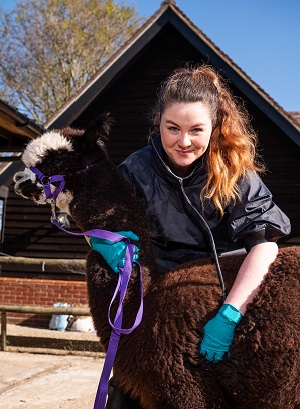-
-
- Council Members
- Role of Council Members
- Council meetings
- Council elections
- Previous election results
- Dr Louise Allum
- Dr Sam Bescoby
- Dr Andrew Clemence
- Dr Tshidi Gardiner
- Dr Reginald Godwin
- Paddy Gordon
- Dr Danielle Greenberg
- Dr Gerard Henry
- Dr Richard Hillman
- Dr Benjamin Kennedy
- Dr Tom Lonsdale
- Dr Darren Partridge
- Martin Peaty
- Alison Price
- Dr Peter Robinson
- Dr Jennifer Simmons
- Dr Sadie Spencer
- Dr Mary Thomas
- William Wilkinson
- Dr Lara Wilson
- Past-Presidents
-
-
-
-
-
- About extra-mural studies (EMS)
- EMS requirements
- Information for vet students
- Information for EMS providers
- Information for vet schools
- Temporary EMS requirements
- Practice by students - regulations
- Health and safety on EMS placements
- EMS contacts and further guidance
- Extra-mural studies fit for the future
-
-
- Code of Professional Conduct for Veterinary Surgeons
- Code of Professional Conduct for Veterinary Nurses
- Contact the Advice Team
- XL Bully dog ban
- 'Under care' - guidance
- Advice on Schedule 3
- Controlled Drugs Guidance – A to Z
- Dealing with Difficult Situations webinar recordings
- FAQs – Common medicines pitfalls
- FAQs – Routine veterinary practice and clinical veterinary research
- FAQs – Advertising of practice names
- GDPR – RCVS information and Q&As
Celebrating Pride with Dr Ami Sawran MRCVS
As part of this year's Pride celebrations, we've been asking veterinary professionals from across the LGBTQIA+ community to share a bit about their work and the importance of representation and inclusion, both within the veterinary world and beyond.
This week, we hear from Westpoint Farm Vets Practice Principal, Dr Ami Sawran MRCVS.
Can you tell us about your background and career in veterinary?
 I am a farm vet, with a varied career history; having worked in academia, teaching, mixed practice and with both clinical and operational roles now within VetPartners. I’m not from a farming background, but I’ve always tended towards farm because it serves a dual purpose of helping people and upholding animal welfare. As clinical director of Westpoint Farm Vets in Chelmsford, I’m very focused on building good practice culture, and helping others to shape and improve theirs through my work at Society of Practising Veterinary Surgeons (SPVS).
I am a farm vet, with a varied career history; having worked in academia, teaching, mixed practice and with both clinical and operational roles now within VetPartners. I’m not from a farming background, but I’ve always tended towards farm because it serves a dual purpose of helping people and upholding animal welfare. As clinical director of Westpoint Farm Vets in Chelmsford, I’m very focused on building good practice culture, and helping others to shape and improve theirs through my work at Society of Practising Veterinary Surgeons (SPVS).
Why is representation so important?
Representation gives people freedom to accept themselves and understand that their sexuality is not something to be ashamed of. Some barriers to that freedom still exist, and while one day it may not be necessary to hold up role models to prove to people that they can succeed without hiding who they are – right now, these positive stories are relevant. It can be hard to feel ‘other’ or like you’re the only one feeling a certain way in a sea of people, so having people who reflect and represent who you are, and your values, is a bit of a raft to cling to.
What progress do you think has been made in terms of LGBTQIA+ inclusion over the years in the veterinary sector?
I feel awareness within our sector has been improved, but it doesn’t mean that we have solved the problem of microaggressions (or worse!). I think that there is motivation and resource to make veterinary workplaces safe and welcoming place for the LGBTQIA+ community – but there is always an aspect of work life that is difficult to control if we are client facing. To me, a good workplace will stand up for its team members if discrimination occurs; it is reassuring to know you will be believed and supported – we aren’t quite there yet in a few areas, but I see a willingness to be.
What more is there still do be done? What are your hopes for the future?
My hope for the future is that everyone within our profession feels welcome, wanted and supported in collaborative atmospheres, regardless of the area in which they work. I’m privileged for having been able to move through the world without really having any internal conflict as to who I am, or much vitriol thrown in my direction because of it – not everybody has that experience, nor the comfort of knowing that their colleagues would protect them if it did, so if we continue our efforts, it is my hope that our need to actively push for inclusion will dwindle – it will simply ‘be’.
Published on 12 June 2023